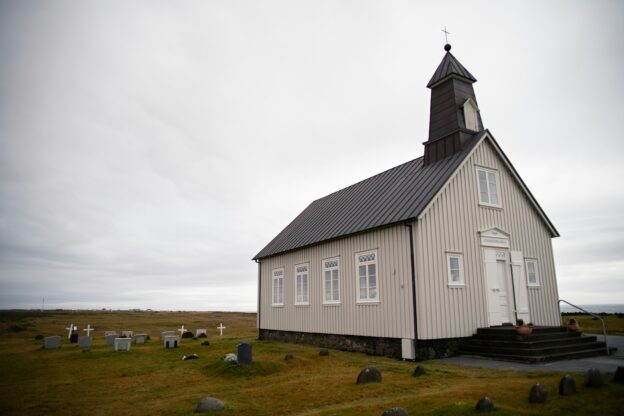When we think about the story of Creation in the Christian faith, we typically do it within the context of Genesis, the story of the past and how things came to be. One may think this creating process was settled at the beginning of time, and that God transitioned from being an entrepreneur to a manager, or worse, a mere aloof supervisor.
However, if we pay close attention to the backdrop of the biblical narrative, we find a God who is actively engaged with Creation, with the people, and progressively constructing new realities. These realities are singular and communal stories, our callings, the reasons for which we exist. In other words, God continues to create for us and through us, making us participants in the not-yet-settled continuity of creating.
As it is in God’s character to be actively creating new things, we were given the ability to do likewise. Thus, we lose meaning and purpose when there are no more goals to be achieved or finish lines to cross. And what comes next is the tragedy of settling, reducing, and subjugating the passion in our blood and soul for the new. Our dreams dwindle and we tell ourselves “I am done,” becoming a mere memory of the past, of the “good years,” with no more to look after, for life has turned into a duty rather than a journey, like a great movie that leaves you with an eager expectation of what “comes next” but there are no sequels. It just ends without ending.
How does this relate to continuing education? Well, the pun is well-intended.
As a person, I have always had curiosity and hunger for the new. I was never afraid of exploring possibilities for my life. I could tell many stories of the types of jobs I had in my teenage years, the wide array of people I have met, and the precious life lessons I have learned. I was not aware of this until I was an adult and reflected on my journey of life and faith. Of course, we all are different, each one with unique personalities, preferences, and characters traits, but if there is one thing I can share that I believe can make a difference in others regardless of how similar or different we may be, it is the power of education.
How could my curiosity or hunger for life have made any difference if I had not at the same time pursued my education? We can spend our whole lives knocking on doors, but until we realize that it is our education that has a vast power to open them, we may never experience the fullness of why we exist.
A great danger in life is as I mentioned before “settling.” This can also be understood as plateauing, becoming a flat line with no pulse.
In Immunity to Change Kegan and Lahey share their life-long journey of studying and testing their thesis of how the adult brain can evolve in how one perceives the world and acts in it. They talk about the common problem of “plateaus in adult mental development” and how as we grow older we not only resist change but also lose any interest in it (by “change” I mean new learning, aspirations, and new or updated life-goals). The majority of adult people function in these plateaus, a sort of outdated mental pattern, and have given up on all desire to learn new things.
Continuing education has the power to awaken us and recreate in us new ways to pursue and find meaning in life.
What will distinguish your leadership from others’ in the years ahead? Your ability to continuing developing yourself.
In my personal life experience, I have learned that I could not be where I am now if I had stopped pursuing learning. Because of this realization I know now that I must never stop learning, growing, and being transformed in and through the development of new abilities; I must feed my mind with new and fresh ideas, especially if they challenge assumptions and behavioral patterns that have not led me to anything new in my life and ministry; and conformity is not a strength necessarily, but a dull and fruitless waste of creativity and talent.
I am a 35-year-old husband, dad of two, a pastor with 13 years of serving churches, and a student of life and church. When I was 15 years old, I thought “this is life!” Then, in my early 20’s I thought, “now, this is life!” But then again in my 30’s, although at the time those earlier memories felt they were “it,”, I now feel again that my life has just begun, and I want to be excited, intrigued, and challenged for what still lies ahead.
If you are a pastor too, a leader in the church, we share a responsibility to expand our minds and renew our faith, for the continuity of God’s work in us is, in many ways, contingent upon our mental, spiritual, and emotional development.
The ever-changing world demands an ever-adapting leader who not only looks ahead but also leads into the future by being well-informed of the past and present, and with an imagination for the future. This is a constant pursuing of the calling of God into new ventures as we move on in life and as the world moves on and reshapes itself around us. The challenges and opportunities of ministry can’t be met by settling down in our learning. Indeed, the nature of the Christian faith is to be an organic one, an ever-growing and moving creature, and not a relic.
Jesus said, “My Father is still working, and I also am working.” (Jn. 5:17)
Could it be that God has not finished creating you and that this continuing creating process includes new learning, revelations, strengths, and dreams? Perhaps God’s idea of sanctifying us includes nurturing our brains with new and better ideas.
Let’s be students for life.
Amen.







